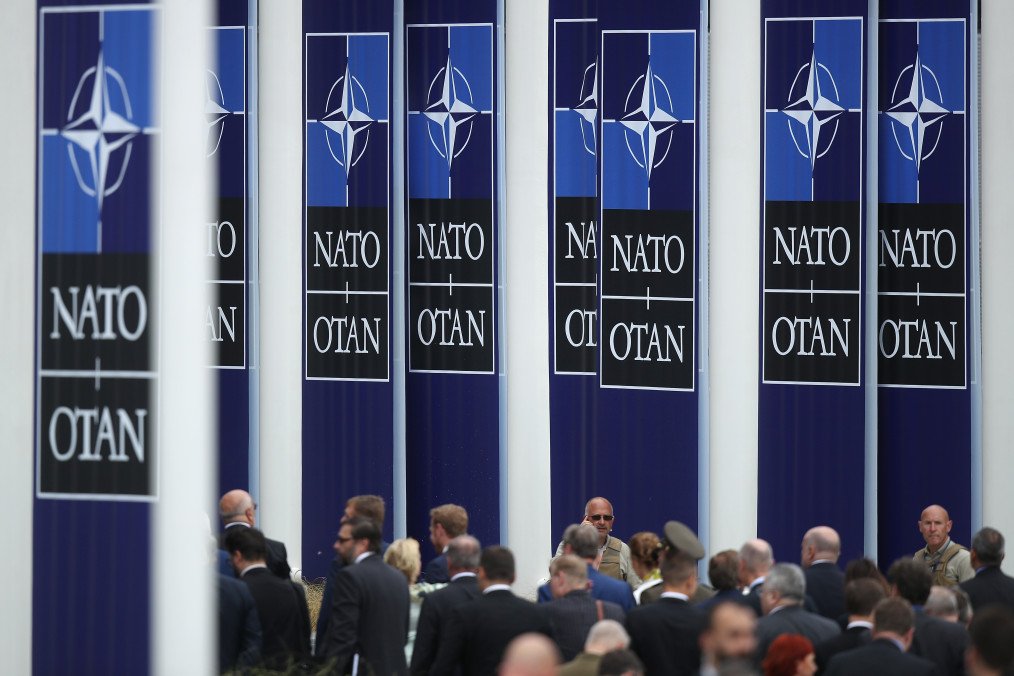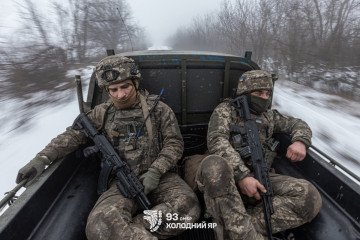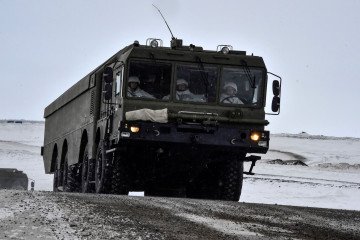- Category
- Latest news
Rutte Warns of Trillion-Dollar Price Tag for NATO If Russia Defeats Ukraine

NATO Secretary-General Mark Rutte warned on January 23 that a Russian victory over Ukraine would weaken the deterrence capability of the world’s largest military alliance according to AP.
He emphasized that restoring NATO's credibility in such a scenario would come at a much higher cost than current plans to increase spending and industrial production.
“If Ukraine loses then to restore the deterrence of the rest of NATO again, it will be a much, much higher price than what we are contemplating at this moment in terms of ramping up our spending and ramping up our industrial production,” said Rutte “It will not be billions extra; it will be trillions extra.”
Speaking on the sidelines of the World Economic Forum in Davos, Switzerland, Rutte stressed that Western support for Ukraine should not be reduced. He urged NATO members to maintain their backing for Ukraine as the war enters its third year.
“We have to change the trajectory of the war,” he said. “The West cannot allow in the 21st century that one country invades another country and tries to colonize it. We are beyond those days.”
Rutte also expressed concerns over the possibility that US President Donald Trump could seek to quickly end the war through negotiations with Russian leader Vladimir Putin, potentially offering terms unfavorable to Ukraine. He warned that such a move would be a mistake.
“If we get a bad deal, it would only mean that we will see the president of Russia high-fiving with the leaders of North Korea, Iran and China and we cannot accept that,” the NATO Secretary-General said. “That would be geopolitically a big, big mistake.”
Meanwhile, Richard Grenell, the US special envoy for missions, criticized NATO members who support continuing the war but fail to meet defense spending targets. He argued that it was “outrageous” for NATO members to push for more military action while not increasing their defense budgets to the agreed 2% of GDP.
NATO leaders have set a goal for each member to spend at least 2% of GDP on defense. According to NATO, 23 of its members are expected to meet this target in 2025, although nearly a third will fall short. Poland and Estonia are currently the highest spenders in proportion to their GDP.
“You cannot ask the American people to expand the umbrella of NATO when the current members aren’t paying their fair share,” Grenell said. He stressed the importance of maintaining a credible defense threat to deter further conflicts.
Andrius Kubilius, European Commissioner for Defence and Space said on January 20 that Europe faces multiple threats, including Russia, North Korea, Iran, and China.
“We are already under threat from disinformation, weaponized migration, attacks on Baltic cables, sabotage, espionage, and other escalating actions,” Kubilius said.
-554f0711f15a880af68b2550a739eee4.jpg)

-72b63a4e0c8c475ad81fe3eed3f63729.jpeg)




-07758747fa31891fc68b463fdea753e8.png)
